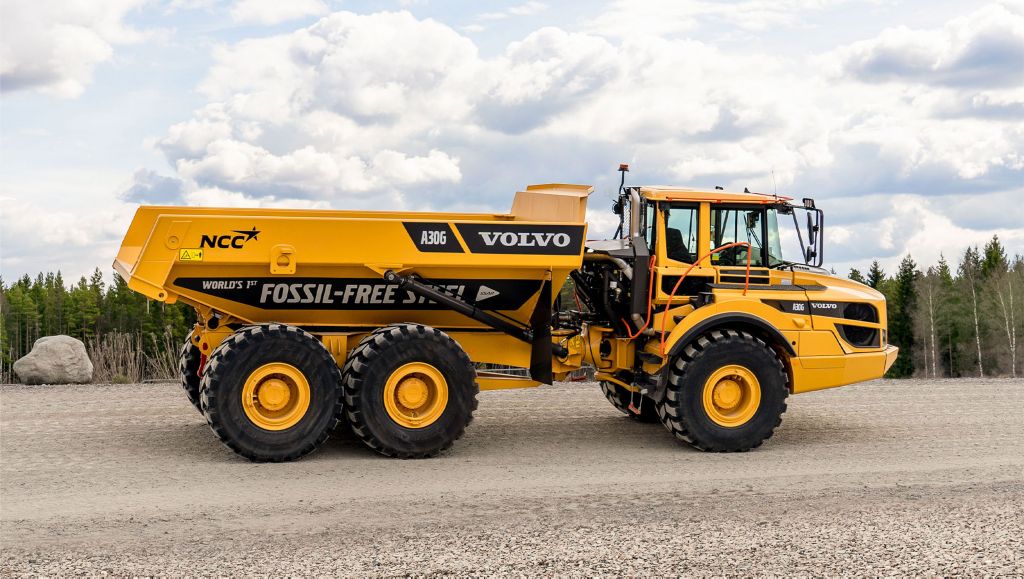Volvo Group and fossil-free steel


The global steel industry accounts for some 8% of CO2 emissions worldwide. That’s a significant amount. With around 70% of a truck’s weight coming from steel and cast iron – and with the figure for Volvo construction machines even higher – replacement of material in our products with fossil-free and recycled alternatives will be another important step on the journey to net zero.
Steel production has been described as “the backbone of today’s modern economy.” But it is also an industry that requires a significant amount of energy to run, primarily from fossil fuels. Fossil-free steel has been on Volvo’s radar for a while and now, thanks to a collaboration with Swedish steel manufacturer SSAB, it’s making its way into our range.
To make fossil-free steel, a direct reduction process is achieved with hydrogen, collected using renewable energy. When the hydrogen is introduced to the process, instead of the coke normally used to smelt iron ore, the end result is water vapor instead of carbon dioxide. As a result of this process and the renewable energy used, fossil-free steel generates no CO2 emissions during its production.
In October 2021, Volvo Group and SSAB unveiled the world’s first vehicle created from fossil-free steel: a hauler.
Next, in May 2022, Volvo Trucks started to introduce fossil-free steel into parts of its range: specifically, the heavy-duty Volvo FH, Volvo FM and Volvo FMX models. Steel produced with hydrogen is being introduced into the frame rails, the backbone of the truck upon which all other main components are mounted. As the availability of fossil-free steel increases, so will the amount used in a truck’s construction.
In June 2022, Volvo Construction Equipment became the first manufacturer in the world to deliver a construction machine made with fossil-free steel to a customer. The machine – an A30G articulated hauler – was handed over to long-term partner NCC as part of the United Nations’ Stockholm +50 summit. It came just nine months after the first fossil-free vehicle concept was unveiled.
The creation of fossil-free steel is another crucial step on a journey that can make things better for our industry. Read more about how steel is proving to be a critical component in the race to net zero.